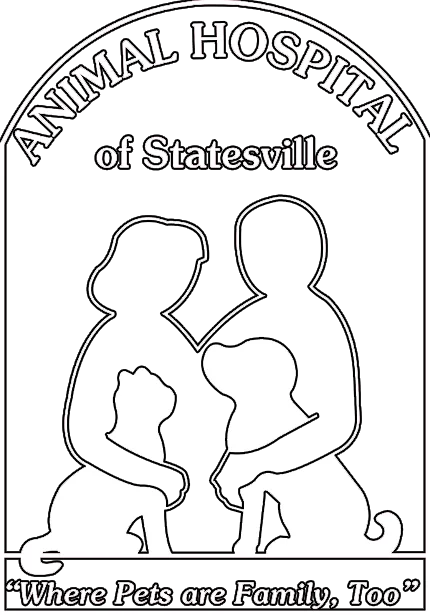Teddie is February's Canine Pet of the Month.

Teddie is a 2-year-old Havanese pup who came in one day in December for not feeling well, lethargic, vomiting, and not eating. The owner noted that it was similar to one of the other housemates (a 4-year-old large breed dog) who came in 3 weeks earlier with similar but less severe signs and who now seemed back to normal. The third dog (Teddie’s sibling) seemed unaffected. The owner was trying to figure out what both dogs could have been exposed to, but it seemed difficult since there was so much time between the sicknesses that perhaps it was coincidence.
The larger housemate had a fever and some overall mild changes on the blood work, but Teddie’s labs were hugely significant. His kidney values were sky high and he was in kidney failure. There are many causes of kidney failure. Often, age and breed can help tell some of those possible causes. Specifically, we think about toxins and infections most common for the young dogs. Some other testing was done and “supportive care” with fluids and antibiotics was started.
After having an antibody test done (on all 3 pets in the house), it was determined that all 3 dogs had high antibodies to leptospirosis. None of the dogs had received the vaccine before. It was determined that all 3 were infected with leptospirosis, though Teddie was the only one with significant kidney failure. Teddie was already receiving treatment for leptospirosis, but the other 2 dogs were started on antibiotics for it as well.
Leptospirosis is a bacteria spread in urine. Any mammal can get it (including humans), but it is common for wild animals and farm animals to get and spread the bacteria in wet environments. It can cause liver and kidney failure. At this time, leptospirosis vaccine is considered a “non-core” vaccine since there are some dogs more “at risk” than others. Many people think of the lepto vaccine as “the water one”. Your classic dogs at risk include those that swim in lakes and creeks. Dogs that live on or near farms, rural areas, go in the woods hiking or hunting or exploring can also be easily exposed. In some cases, a rat or mouse can even bring the disease closer to or inside a home environment. These dogs had not had the vaccine before and the owners felt they were lower risk since they basically stayed in a fenced yard and did not have the typical types of exposure. The main problem with this past year is all of the excess rain and water we had all year long! This has caused flooding, pooling, and washing out of dirt and disease in locations it may typically be less frequent. The thought is that the rains caused exposure through washout from a nearby farm area.
It took much longer for Teddie to improve from his illness than any of the other dogs, but finally he was feeling much better! His recheck kidney values are still not normal, but at least they are lower and he is feeling good. It can take months for those values to return to normal and sometimes they never completely recover. Since he survived the initial sickness and is doing much better, he is expected to have a good outcome from this deadly illness. And this is the reason Teddie (and his housemates) get to be the Pet of the Month for February!
Nemo is February's Feline Pet of the Month.

Nemo is a very sweet indoor kitty that does go outside occasionally. Nemo presented to the hospital one afternoon for limping on a hind leg. Nemo’s owner had noticed that his foot looked abnormal as well. On inspection, Nemo was mildly lame on the left hind leg and the last digit of the toe was deviated straight upright. A radiograph was taken and no fractures were noted. The toe was dislocated. With gentle manipulation the toe was manually replaced. Nemo’s limp was immediately better. In most cases, a joint dislocation needs a splint to stabilize to allow the joint and surrounding tissues to heal, in addition to helping with pain control. Nemo went outside often enough that that option was not practical and Nemo seemed to have very little pain. Nemo went home on pain management and his toe luxation did not recur and he did very well. Nemo was an unusual case with a good outcome. That is why he is AHS’s feline Pet of the Month.

